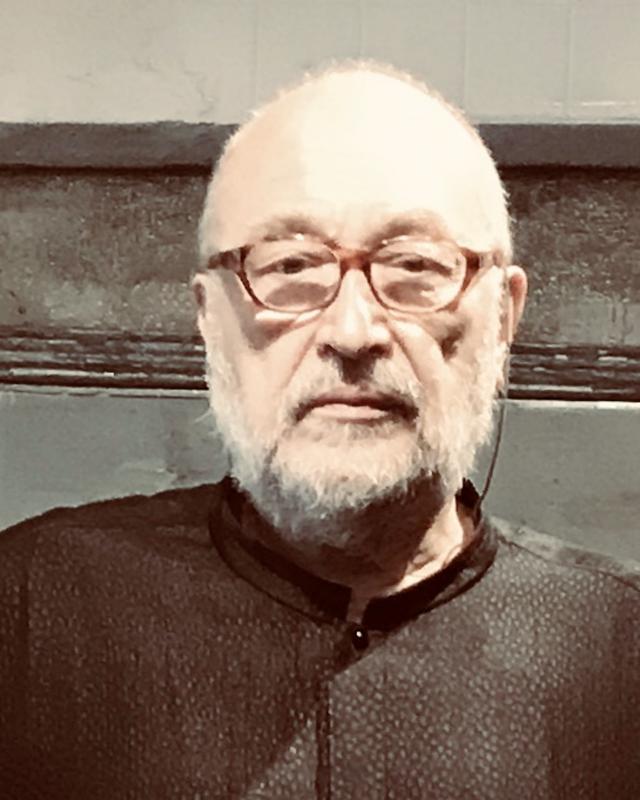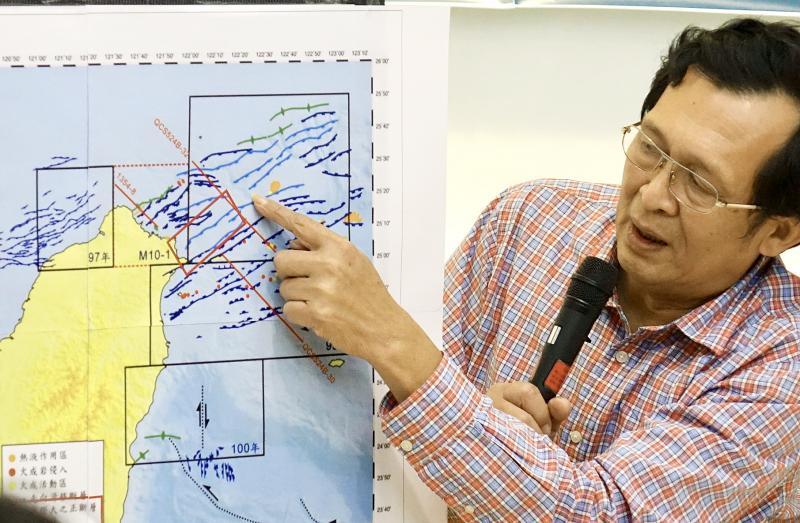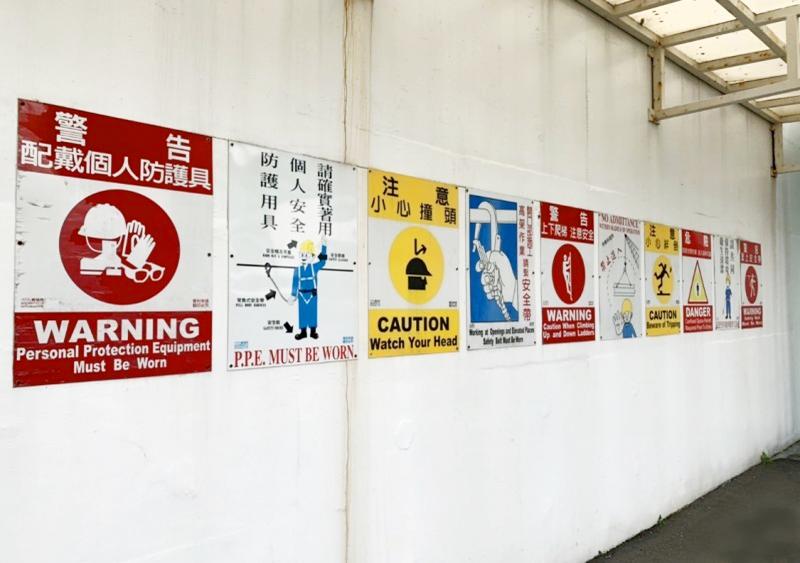In last week’s interview, publisher and historian Rene Vienet discussed his two-decade involvement with the development of nuclear power in Taiwan. Here Vienet suggests a variety of ways for Taiwan to safely recycle its nuclear waste.
The interview has been condensed and edited for clarity.
Michael Turton: The spent fuel problem. What choices does Taiwan face?

Photo: Michael Turton
Rene Vienet: The answer, with two options, for Taiwan, may be in Switzerland, a democratic, affluent country with the highest standards and education and five nuclear reactors. The Swiss have hesitated between two options:
Option A: For part of their spent fuel, the Swiss chose to close the nuclear fuel cycle: The fuel is recycled in France at La Hague [Nuclear Recycling and Reprocessing Plant ], and the ultimate waste, the vitrified fission products, is returned to Switzerland. This long-life highly radioactive real waste is then minimal, compact and ready for passive safe storage. The remaining balance, 95 percent of the recycled used fuel rods, can then be optimized by utilities interested in mixed oxide fuel.
Option B: Interim storage of the spent fuel in dual-use casks, licensed for both transportation and storage, which do not require active cooling.

Photo: Chien Jung-fong, Taipei Times
Both A & B are located between Zurich and Basel, at Zwilag Center, a must-visit place for all concerned Taiwanese legislators, reporters, etc.
MT: Okay, so how and where can we do this in Taiwan?
RV: At the southern tip of Taiwan, there is ample space in a low-density population area already belonging to Taiwan Power Company. This is the site of the Ma-anshan Nuclear Power Plant in Ma-anshan (馬鞍山) [in Pingtung County], still in operation without any problems. The site was scheduled for six reactors, so to use a quite modest portion of the available land (the area of a soccer field) would be easy, once everyone concerned in Taiwan, from [citizens] to elected officials, and reporters, visits Zwilag Center, near the French border, and grasps how simple its operating principles are and its easy-to-understand impressive safety.

Photo: Lin Jing-hua, Taipei Times
MT: Which option would you advise for Taiwan? Recycling in France? Or the Ma-anshan storage of dual-use casks?
RV: In Taiwan one needs to try to agree on a consensual solution that can be accepted by both anti-nuclear and pro-nuclear citizens. Since the four reactors at Guosheng and Jinshan [in New Taipei City] are at the end of their industrial life and will be dismantled, the over-saturated pools need to be emptied as soon as possible, and the spent fuel must leave New Taipei City.
Please remember that reactor pool storage requires careful monitoring and active cooling, and that the Fukushima nuclear accident started, after and because of the tsunami, with the failure of the back-up cooling in the pools (because back-up diesel generator vents had been placed lower than the historical tsunami height). Dry-storage is indeed easier, and more logical, but [citizens] and elected officials do not want the spent fuel to over-stay in Jinshan or Guosheng.
For sure, it would prevent the sites from being transformed into a sea-shore university or an amusement park ... This is where dual-use casks should be welcome by everyone, but transported by a specific sea vessel, to Ma-anshan, where the dual-use casks would be stored on a very simple concrete pad, under a very simple roof, at the end of a simple road connecting with the simple dedicated small wharf already there.
Either option A or option B is fine, though of course recycling in France would be more advantageous for Taiwan, and a big political plus for the government. But a serious assessment of both options must be conducted by Taipower specialists and AEC [Atomic Energy Commission] regulators, and submitted to legislators.
MT: So on-site storage at Guosheng and Jinshan is not good?
RV: It’s not me who rejects this alternative but practically everyone, including the anti-nuke people. First of all, New Taipei City’s elected officials — even the pro-nuclear ones — guess that the interim may become very long, with no schedule nor device arranged for the next step transfer to a final disposal site. The fact that they are KMT [Chinese Nationalist Party] officials is not relevant. DPP [Democratic Progressive Party] elected officials with the same responsibilities would also be against this particular on-site dry-storage. And in fact anti-nuclear activists (including inside the DPP) are also against opening this ill-conceived on-site interim dry-storage for operation. Pro-nuclear specialists feel uneasy about dismantling the reactors with the spent fuel remaining so close, under compulsory heavy security.
MT: What about the money?
RV: The funding is already in the Nuclear Power Back-End Operations Fund, an escrow-account managed by the Ministry of Economic Affairs’ (MOEA) State-owned Enterprise Commission, accumulated by a reasonable modest fee, out of each nuclear-generated kWh.
The back-end of the nuclear fuel cycle may look expensive. But once related to the huge income of inexpensive nuclear power generation, this is almost peanuts. The problem is not money. It is not technology. It is just the best timing for Taiwan coming of age, politically, as far as nuclear electricity is concerned, and particularly if the DPP wishes seriously to phase out nuclear power.
As long as there is spent fuel in New Taipei City, with about 30 tonnes of contained plutonium stored there, a serious question looms over all legislators and all opinion leaders. Let’s encourage them to visit Switzerland to taste and test the local chocolate tablets for the two options available at the Zwilag Center for any visitor. So far only one from Taiwan, a publisher, has visited with me. You should be the next one.
MT: I seem to remember, after the failed Taipei proposal before year 2000, there was some more recent scheme to ship nuclear spent fuel to France?
RV: Yes, a failed proposal for a pilot scheme to ship part of the spent fuel to France. Taipower had reconnected with France for this idea. But it was immediately derailed by some DPP legislators, who pointed out to the MOEA that this would only allow another few years’ electricity generation at Jinshan and not solve the overall issue. Technically it could have made sense to test the logistics for one-twentieth of the problem, but politically it was a bit naive.
Again, to provide a solution one does need a comprehensive approach bringing a soothing consensus to all minds, pro-nuclear and anti-nuclear.
Notes from Central Taiwan is a column written by long-term resident Michael Turton, who provides incisive commentary informed by three decades of living in and writing about his adoptive country.

As Taiwan’s second most populous city, Taichung looms large in the electoral map. Taiwanese political commentators describe it — along with neighboring Changhua County — as Taiwan’s “swing states” (搖擺州), which is a curious direct borrowing from American election terminology. In the early post-Martial Law era, Taichung was referred to as a “desert of democracy” because while the Democratic Progressive Party (DPP) was winning elections in the north and south, Taichung remained staunchly loyal to the Chinese Nationalist Party (KMT). That changed over time, but in both Changhua and Taichung, the DPP still suffers from a “one-term curse,” with the

Jan. 26 to Feb. 1 Nearly 90 years after it was last recorded, the Basay language was taught in a classroom for the first time in September last year. Over the following three months, students learned its sounds along with the customs and folktales of the Ketagalan people, who once spoke it across northern Taiwan. Although each Ketagalan settlement had its own language, Basay functioned as a common trade language. By the late 19th century, it had largely fallen out of daily use as speakers shifted to Hoklo (commonly known as Taiwanese), surviving only in fragments remembered by the elderly. In

William Liu (劉家君) moved to Kaohsiung from Nantou to live with his boyfriend Reg Hong (洪嘉佑). “In Nantou, people do not support gay rights at all and never even talk about it. Living here made me optimistic and made me realize how much I can express myself,” Liu tells the Taipei Times. Hong and his friend Cony Hsieh (謝昀希) are both active in several LGBT groups and organizations in Kaohsiung. They were among the people behind the city’s 16th Pride event in November last year, which gathered over 35,000 people. Along with others, they clearly see Kaohsiung as the nexus of LGBT rights.

In the American west, “it is said, water flows upwards towards money,” wrote Marc Reisner in one of the most compelling books on public policy ever written, Cadillac Desert. As Americans failed to overcome the West’s water scarcity with hard work and private capital, the Federal government came to the rescue. As Reisner describes: “the American West quietly became the first and most durable example of the modern welfare state.” In Taiwan, the money toward which water flows upwards is the high tech industry, particularly the chip powerhouse Taiwan Semiconductor Manufacturing Co (TSMC, 台積電). Typically articles on TSMC’s water demand